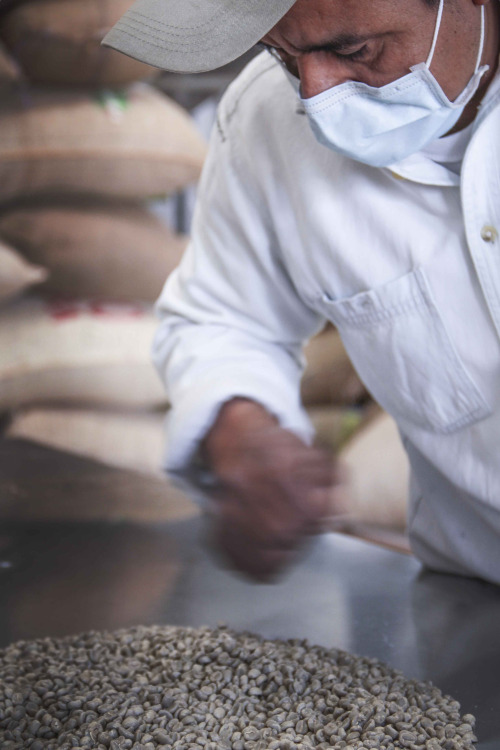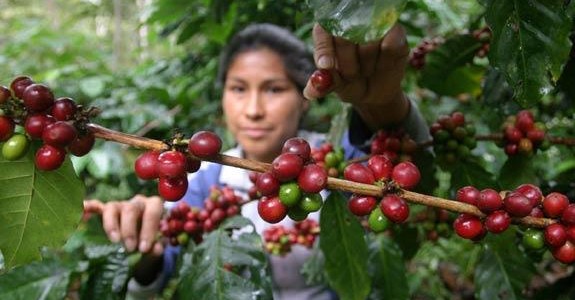I sat down to talk with Salomón García Moreno, a friend that I first met more than 15 years ago. I have a great deal of respect for Salomón based on his long-standing fight for coffee producing communities in Oaxaca, Mexico. His work organizing producer groups has literally been a fight against a myriad of factors, many of which are so complex and complicated that it would take a lot more pages to explain in full.
While I was talking with Salomón about the ‘thin months’ (the time of year when earnings from the coffee crop have run out), he told me that many coffee producers aren’t all that interested in projects focused exclusively on food production, especially vegetables. When I asked him why, he told me: “Don’t take this the wrong way. But we’ve carried out assessments regarding food availability in our communities. People tell us that there are still a lot of wild plants that they eat to complement their diet. Some food security projects impose certain types of vegetables that people aren’t familiar with, or which they don’t like; or project participants have to raise animals that require special care, but that community members can’t provide. There are so many other pressing needs in communities.”
 Salomón continued, “People need clothes and shoes, they need to buy medicine, school supplies, and uniforms for their kids, and they need transport and fuel. People in communities need an infinite number of things—all of which require money. For this reason, in our organization, we think the most important thing is to strengthen the local economy—so that people are able to pay for what they need to live, including their food. That’s why our organization promotes projects focused on diversifying incomes. These projects are tied into our work to retain more value within our product supply chain. Or to at least reduce the number of intermediaries in the coffee supply chain by, for example, creating more direct trade relationships or selling roasted and ground coffee in large volumes. If we can improve our producers’ incomes, we can reduce poverty and, consequently, food insecurity.”
Salomón continued, “People need clothes and shoes, they need to buy medicine, school supplies, and uniforms for their kids, and they need transport and fuel. People in communities need an infinite number of things—all of which require money. For this reason, in our organization, we think the most important thing is to strengthen the local economy—so that people are able to pay for what they need to live, including their food. That’s why our organization promotes projects focused on diversifying incomes. These projects are tied into our work to retain more value within our product supply chain. Or to at least reduce the number of intermediaries in the coffee supply chain by, for example, creating more direct trade relationships or selling roasted and ground coffee in large volumes. If we can improve our producers’ incomes, we can reduce poverty and, consequently, food insecurity.”
Salomón also told me about a parallel theme related to food security that worries him a lot—food sovereignty. He told me: “Our communities are constantly under threat from copyrighted and genetically modified seeds and basic grains. Our country is required to buy these from other countries as part of trade deals—deals that don’t provide us benefits but for which we suffer the consequences. We are losing the right to preserve, cultivate, and consume the natural plants that are our heritage.”
After this interesting conversation with Salomón, I remembered that, many miles away in Amsterdam, Holland, an international event was taking place – the Sustainable Food Lab Leadership Summit. This gathering brings together the brightest minds in development and the food industry to discuss pertinent issues and to resolve problems (rather than just the symptoms). I have a lot of hope that the event creates real change—rather than simply creating more standards, regulations, certification schemes, and codes of conduct that producers are expected to comply with in order to stay in the market. I hope that decisions and information from this sort of event can make its way back to Salomón and his producers, to help create value rather than simply extract it.
By José Luis Zárate

